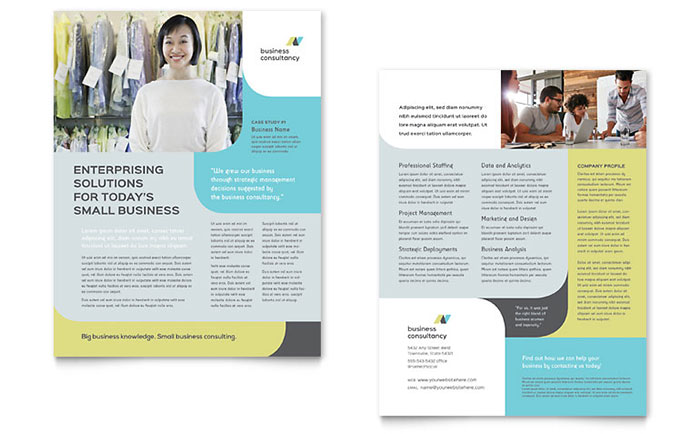
The role of a financial advisor is to help clients manage money. They can help people save for retirement, or plan for their children's college education. They can also help people manage their debt and pay down balances. People will have less money for spending and more money for retirement. An advisor in financial planning can help individuals create and manage a budget to reach specific goals.
Investing component of a financial advisor's questionnaire
Clients are asked about their risk tolerances and investment preferences in a questionnaire by a financial advisor. These questions will give you a complete picture about your financial situation. They include questions such as how long the client plans on working and saving for retirement. They ask about long-term financial obligations and pensions. The questionnaire's investment component can be subjective but it allows the advisor to decide the right asset allocation.
When recommending investment options for clients, financial advisors should act in the client's best interest. This means they must use the questionnaire to determine which investment options best fit a client's needs and risk tolerance. Incorrect answers can lead to portfolios that are too risky and/or too low for the investor's capabilities. This can lead to lower returns for clients who have higher risk tolerances.
Allocation of assets
Financial advisors are there to help people find the right mix of assets. This is achieved by recommending an allocation of assets that meets your risk tolerance. Investing involves risk. It is essential to develop a strategy for managing that risk. A financial advisor will help you determine the right asset allocation, based on both your time frame and risk tolerance.

There is no set rule for asset allocation, and each advisor has a different approach. But there are key concepts you should understand and be able to apply. Clients with long-term goals may require a greater allocation of stocks and bonds to their retirement portfolios.
Tax planning
A financial advisor will help you maximize your tax savings through investments. They can recommend investments and offer advice about insurance and investment products. Tax planning can be a crucial part of financial advisory and could help you save thousands every year. To help clients better, financial planners may also use tax planning software.
Tax-experienced financial advisors are more likely than others to help you reduce taxes. They are also likely to focus on maximizing your assets rather than minimizing them. A compensation model may be offered that encourages growth for their clients.
Communication with your financial advisor
The first step in developing a relationship with a financial advisor is communication. It is important to communicate clearly with your advisor. Your financial advisor must know your financial goals to be able to assist you in developing strategies that meet those goals. Listen to the advisor and pay attention when he or her explains something to.
Your advisor can also communicate via social media. According to a survey, over half of investors with at least $25 million in assets use Facebook to communicate directly with their financial advisor. Another 35 per cent use Twitter to communicate with their advisor.

As a financial advisor, you get paid
If you decide to become a financial planner, the first thing you need to do is determine how you will be paid. A percentage may be offered as a bonus or commission, while others might offer a flat fee. In each case, the type and amount of compensation you receive will impact how much you are able to make.
Financial advisors can make money selling products or commissions. Some charge an hourly service fee, while others require a monthly retainer payment for their ongoing services. Do not hesitate to ask your advisor which option they prefer.
FAQ
What is the real value of consulting?
Consulting is not only a good entry-level job for people looking to make quick money.
Consulting offers various opportunities from project management, business development, strategy, training, and leadership roles. You might find yourself working on projects ranging from small start-ups to large-scale international corporations.
You can develop your skills and gain experience in a variety of industries by consulting. This could be learning to manage people, write proposals and manage budgets, analyze data and create presentations, or conduct market research.
Who hires consultants
Many organizations employ consultants to assist in projects. These can include small businesses and large corporations, government agencies as well non-profits and educational institutions.
Some consultants work directly for these organizations, while others freelance. In either case, the hiring process varies depending on the size and complexity of the project.
Many rounds of interviews are required when hiring consultants. Then, the final decision will be made about who you believe is best for the job.
How do I become successful as a consultant?
Finding a passion area is the first step. You must then build relationships. Understanding your clients' needs and operating style is essential. You must also deliver results.
While you don’t necessarily have to excel at every task, you should be better than all the rest. You must also have passion for your work. It's not enough to just say "I want to be a consultant." It is important to believe in yourself and the work you do.
Statistics
- According to IBISWorld, revenues in the consulting industry will exceed $261 billion in 2020. (nerdwallet.com)
- According to statistics from the ONS, the UK has around 300,000 consultants, of which around 63,000 professionals work as management consultants. (consultancy.uk)
- So, if you help your clients increase their sales by 33%, then use a word like “revolution” instead of “increase.” (consultingsuccess.com)
- Over 50% of consultants get their first consulting client through a referral from their network. (consultingsuccess.com)
- 67% of consultants start their consulting businesses after quitting their jobs, while 33% start while they're still at their jobs. (consultingsuccess.com)
External Links
How To
How do I find a good Consultant?
Understanding your needs is the first step to finding the right consultant. What do you need them to do for your website? Do you need them to optimize your site so that it ranks higher in search engines' results? Or perhaps you just want someone who can tell if there are any issues with your current hosting provider. You should know the type of services that you require before you start looking at other companies. Many consultants claim that they can offer these services. But only a small percentage of them are able to deliver. How can you pick the right one? Here are some considerations when choosing a consultant.
-
Get referrals. This is probably the best way to choose a consultant. You don't want to hire someone you've never heard of before because you'll likely pay too much. But you also don't want to work with someone whose reputation isn't solid. It's great if you get recommendations from people you trust. Even if you don’t have any referrals, you can still look online for reviews. Seek out testimonials from satisfied clients.
-
Ask around. Many people aren't aware that they could benefit from hiring a consultant. They think that since they're currently doing fine, they don't need to make changes. This is often incorrect. Even if your results are great, there's a good chance that you haven’t kept up with the latest trends and technologies. And if you're relying on outdated methods, you'll miss out on opportunities to grow your business. It is always worthwhile to ask around for recommendations of good consultants.
-
Verify their qualifications. It doesn't matter if you are looking for a consultant to help you build a blog or launch a multimillion-dollar eCommerce site, you need to make sure they have the right skills to manage your project. You need to ensure that the person you hire is qualified to do the job and has sufficient knowledge in the subject.
-
Find out what type of projects they are skilled in. This is false. Some areas require specific education or training. For example, if you need someone to build a WordPress theme, you won't want to hire a developer who specializes in Drupal. The same goes for graphic design, programming languages, etc. Ask them what types of projects they are most familiar with.
-
Be aware of their fees. We said that you don't need to pay too much for consulting services. But you also don't want to pay too little either. Consultants come in many sizes and shapes. There are some that charge an hourly fee, while others may bill per job. Knowing exactly what you're paying upfront will save you money down the road.
-
Know what they offer. Are they offering free consultations or other services? Do they offer advice on setting up your system? Is there a guarantee that your site will rank higher after working with them? You have the right to cancel at any time if you aren't satisfied with what was said during your consultation.
-
Also, ask if discounts are available for multiple months and years. Many consultants offer discounted pricing for extended time periods. Even though you do not necessarily have to commit to a whole year of service, you might still be able to benefit from any specials they offer.